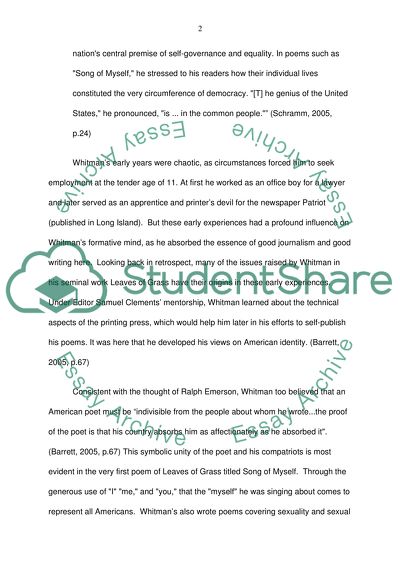Cite this document
(“Whitman's Poetry and American Identity Essay Example | Topics and Well Written Essays - 1250 words”, n.d.)
Retrieved de https://studentshare.org/literature/1428759-whitman-s-poetry-and-american-identity
Retrieved de https://studentshare.org/literature/1428759-whitman-s-poetry-and-american-identity
(Whitman'S Poetry and American Identity Essay Example | Topics and Well Written Essays - 1250 Words)
https://studentshare.org/literature/1428759-whitman-s-poetry-and-american-identity.
https://studentshare.org/literature/1428759-whitman-s-poetry-and-american-identity.
“Whitman'S Poetry and American Identity Essay Example | Topics and Well Written Essays - 1250 Words”, n.d. https://studentshare.org/literature/1428759-whitman-s-poetry-and-american-identity.


